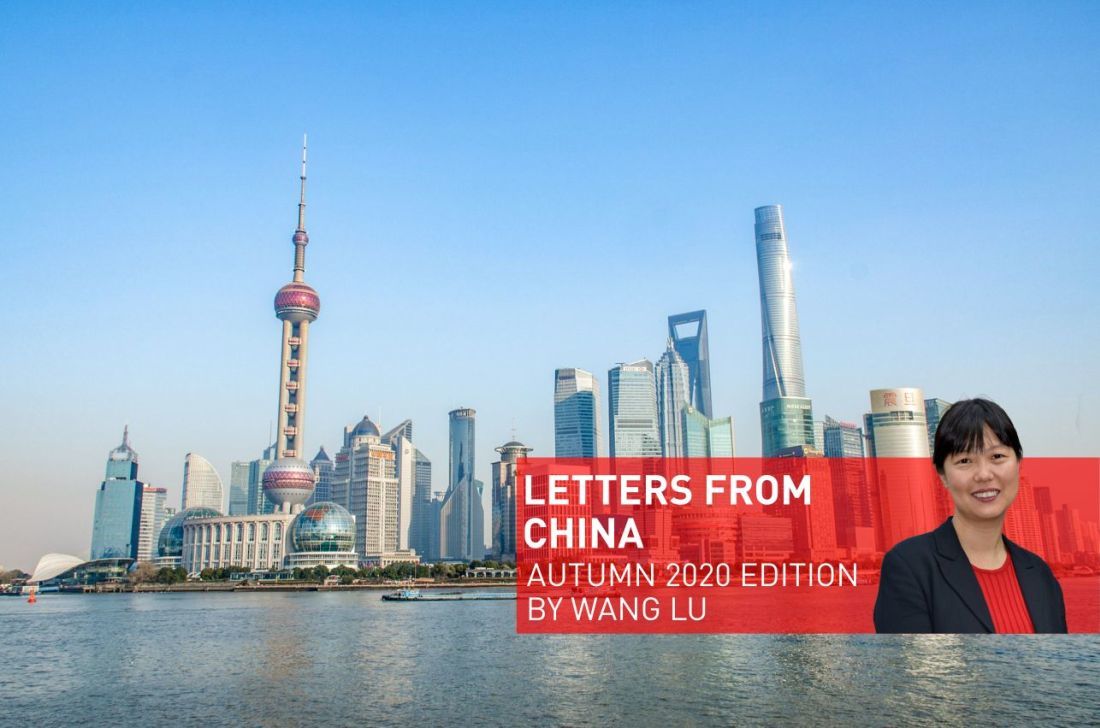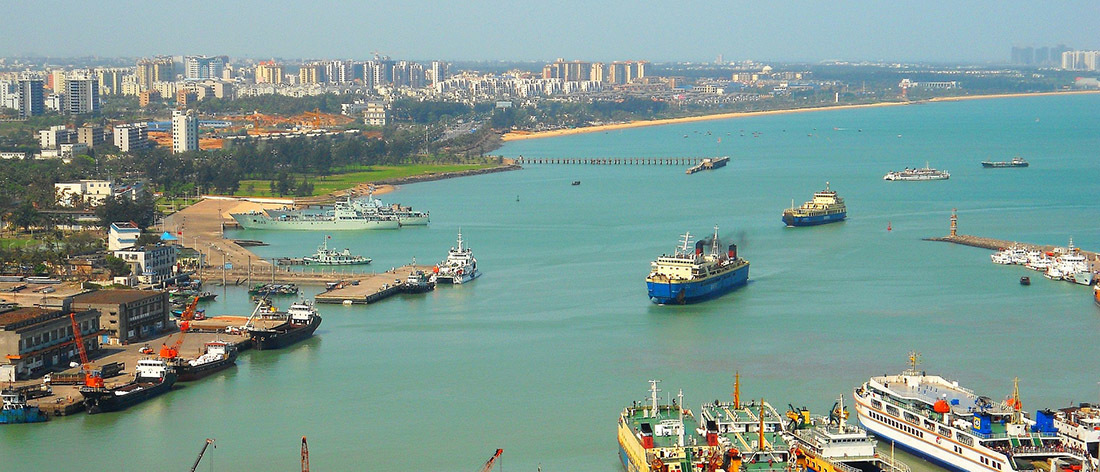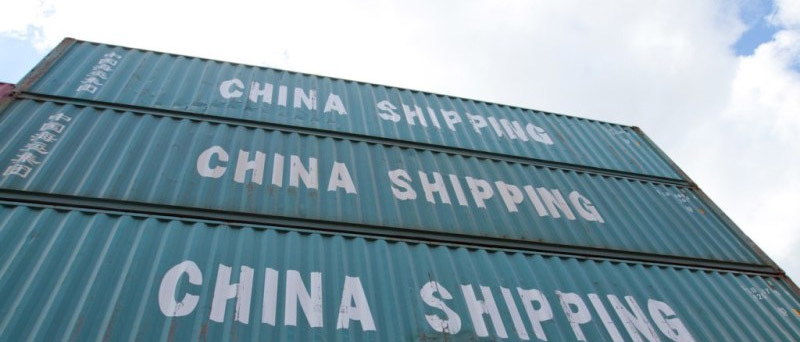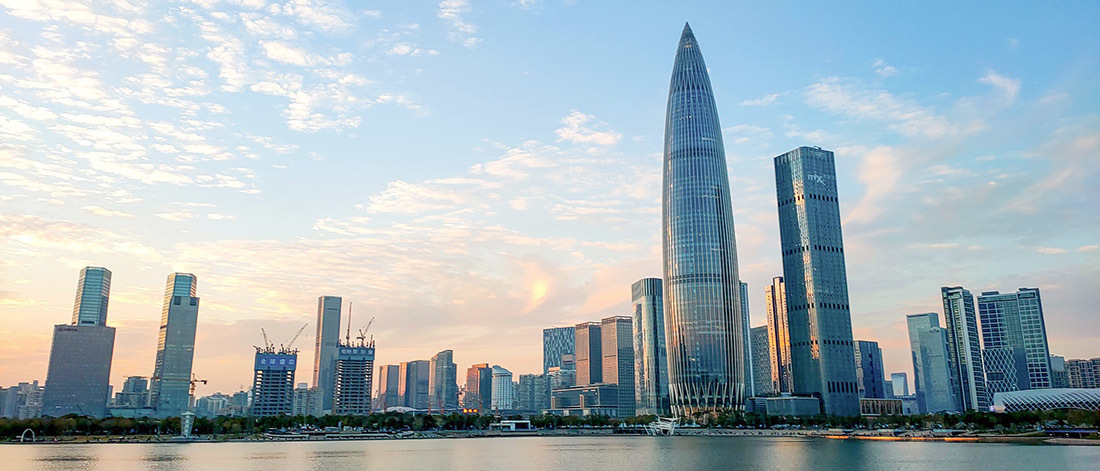Letters from China: Autumn 2020 edition
Letters from ...Information on and insight into business and investment in China

Until now, the West has paid little attention to Hainan, one of China's lesser-known provinces. But a new free trade zone may be about to change that, at least as far as the world of business is concerned.
Every four months, Lu Wang, director of the local Bremeninvest office, reports from Shanghai on the latest trends, opportunities and developments in China.
How companies can benefit from the Yang Pu free trade zone in Hainan

Hainan is the southern-most province and the largest island in the People's Republic. It is popularly known as 'China's Hawaii' thanks to its sandy beaches and tropical temperatures. In addition to being one of the country's most popular tourism destinations, the island, which until the 1990s was among the poorest regions in China, is set to play a more important role in trade in the future.
The Hainan Free Trade Zone is conveniently located in the South China Sea, halfway between Vietnam, Thailand and Malaysia in the west, and Hong Kong, Taiwan and the Pearl River Delta around the megacities of Shenzhen and Guangzhou in the east. As part of the Silk Road (Belt and Road Initiative), Hainan also serves as an extension on the north-south transport route from Russia and Mongolia through China's northern provinces and on to countries in South East Asia.
Yang Pu Free Trade Port
The port of Yang Pu in the north of the island plays a key role in this plan. It mainly handles goods from the petrochemical, paper, construction and food industries at the moment, but the Chinese government's new infrastructure project will see the area also play a leading role in goods logistics and in the import/export business.
A free trade zone covering 120 square kilometres and with a capacity of up to five million containers a year will be created by 2025. By way of comparison, Bremerhaven, Europe's fourth-largest port, processes 4.9 million containers a year. The aim is to develop the region economically and to divert some of the transshipment business (container shipping) from larger ports such as Shanghai and Shenzhen. Around a million containers already arrive at the port of Yang Pu every year. The free trade zone, which has been running as a pilot scheme since 2018, is set to be expanded by 2025 and fully operational by 2035.
Benefiting from free trade
The free trade zone around Yang Pu is a springboard to China for companies from Europe. It also offers some attractive tax benefits: goods that are more than 30 per cent made in Hainan (as a proportion of the added value) will be allowed to enter mainland China duty free. Neither import value-added tax nor import and excise duties are due for importing production facilities, vehicles or raw and auxiliary materials required for production in Hainan. Corporation tax in the free trade zone has been reduced from 25 per cent to 15 per cent, as has income tax for highly skilled workers.
This makes the island port particularly interesting for companies looking to base part of or all of their production in China. They also benefit from the proximity to the most populous and thus strongest sales region in the People's Republic. Companies can either rent ready-made premises in Yang Pu or lease land on which to build their own factories.
Further bureaucratic and regulatory relief is designed to make the entire island of Hainan more attractive for inward investment and help develop infrastructure and innovation.
Time is ticking for TikTok – what value does social media have in marketing in China?

In recent weeks, the controversy surrounding the US arm of the popular Chinese social media app TikTok (German) has gone global. In an executive order, President Trump banned parent company ByteDance from operating the app in the US. In addition to facing legal action, the company is now being forced to find a buyer for its US-based online business.
In China, TikTok is known only under the name Douyin, and with 500 million users it is not even one of the country's largest social networks. The leader is WeChat, an app that combines a whole host of functions, including a payment service that is accepted by a growing number of companies in Europe (as we reported). In second place is Weibo, a micro-blogging service similar to Twitter, and third is Tencent QQ, a popular chat app. In fourth place is Youku, the Chinese equivalent to YouTube.
There are many other networks, and companies in the West are increasingly looking to use them as advertising platforms (German). Just like in the West, they can be used to run advertising campaigns. Influencers are important opinion formers, especially in the consumer business, and can quickly reach millions of users across the networks. It is important for companies in the West to familiarise themselves with the typical customs of each network, as each platform has its own peculiarities.
In recent years, many marketing agencies in the West have specialised in campaigns in China, and one interesting example is Hotnest. This Chinese company was founded by Fabian von Heimburg from Germany and Mu Qing from China, an unusual arrangement that has attracted a great deal of attention (German). Hotnest is now expanding from China to the West, where it offers companies real-time analyses of social media trends.
One example from Bremen is the agency regroup (German), part of the long-established, Bremen-based trading company Melchers. It specialises in digital communications in emerging markets such as China and India.
Chinese companies are investing in Bremen

Over the past 17 years, Bremeninvest has supported more than 150 Chinese companies in Bremen. The Hanseatic city is particularly attractive to these companies thanks to its port, but also as a springboard into Europe. To find out what draws Chinese people to Bremen, see our Letters from ...
Chinese LED business finds success in Bremen

David Zhou, who came to Bremen seven years ago and now sells LED lighting across Europe, is just one example of a successful business run from Bremen. What particularly sets him apart is that he has his own factory in China with 60 employees.
Recommended link: A journey to Shenzhen

The metropolis of Shenzhen is considered China's main technology hub and is undergoing rapid change. Industry heavyweights such as Tencent and Huawei are based in the city in southern China. Die Zeit newspaper published a (pre-coronavirus) travelogue (German)that is well worth a read (available in German only).
Lu Wang
Bremeninvest China / Office Shanghai
Director Bremeninvest China
+86 21 5081 5576
Success Stories
Letters from Türkiye: Summer 2025 edition
Türkiye is focusing on high-tech innovation in order to achieve long-term growth. Will it succeed? Our Türkiye expert Erol Tüfekҫi explains in our country report.
Learn moreLetters from Vietnam: Winter 2025 edition
What effects will the sweeping changes in the White House have on Vietnam's economy? Could the current administrative reforms have negative implications for foreign investors? These topics and more will be discussed in the latest Letter from Vietnam.
Learn moreLetters from Vietnam: Summer 2024 – Are German companies underestimating Vietnam?
Are German companies underestimating investment opportunities in Vietnam? And is Cambodia stealing the limelight from Vietnam? You'll find details about all this and more in our summer 2024 Vietnam newsletter.
Learn more

